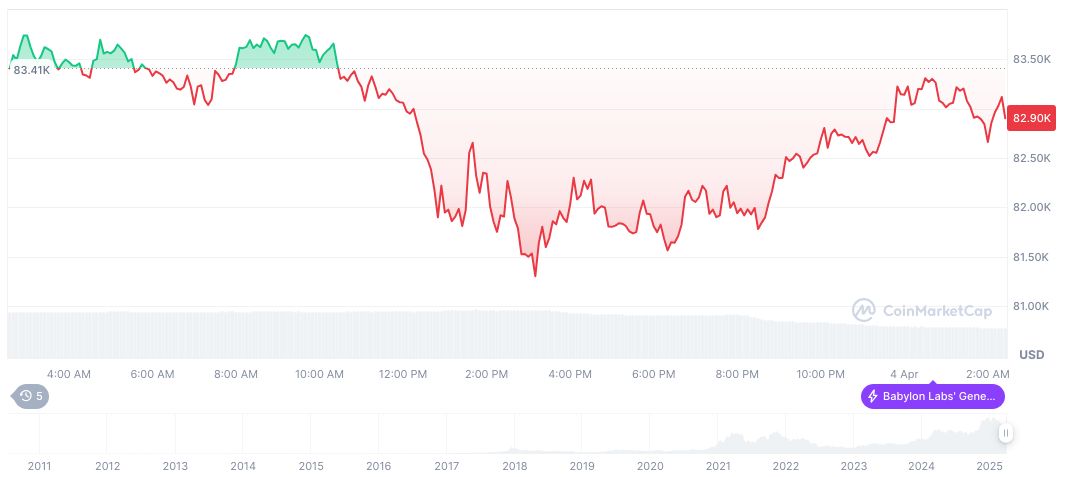- Tariff plans ignite volatility in global markets, impacting stocks and cryptocurrencies.
- Dow Jones fell 1,000 points, Bitcoin dropped below $81,644.
- Experts criticize tariff methodology, citing economic misalignment.
Donald Trump announced on April 2, 2025, new tariff measures affecting global economies, pressuring both traditional and cryptocurrency markets. The announcement impacts international trade and investor confidence, showing market instability akin to previous years’ tariff actions.
The implementation of “reciprocal” tariff measures by Donald Trump, reminiscent of his previous administration’s protectionist policies, has caused notable turbulence in financial markets. Sources highlight that the formula used resembles strategies proposed by Peter Navarro, a key advisor during Trump’s earlier term.
Tariff Announcement Sends Stocks and Crypto Tumbling
Following the announcement on April 2, significant downtrends were observed across U.S. financial markets. The Dow Jones plunged by 1,000 points, and cryptocurrencies experienced similar declines, with Bitcoin’s price dropping to $81,644, reflecting waning investor confidence.
Economists have heavily criticized the tariff formula, describing it as a “fundamentally nonsensical” method that lacks alignment with longstanding economic principles. Market analysts express unease over potential inflation and volatility, with significant implications for investor strategies amid these trade policies.
“These tariffs are about America winning again on the trade front.” — Donald Trump, Former U.S. President, source
Crypto Market Volatility: Historical Trends and Current Analysis
Did you know? The last time significant tariff announcements occurred during a U.S. presidency in 2018, markets experienced similar volatility, with stock indices and cryptocurrencies posting declines, reflecting economic uncertainty.
As of April 4, 2025, Bitcoin’s price is $84,281.28 with a market cap reaching $1.67 trillion, according to CoinMarketCap. The crypto market shows fluctuations, marked by a 2.77% 24-hour gain. Over the past 60 days, a notable dip of 16.62% demonstrates significant volatility.

Experts from Coincu predict pressure on global financial systems as a potential outcome, urging policymakers to consider historical trade tensions’ impact on economic stability. Bold policy measures could amplify both positive and negative market developments in evolving regulatory landscapes.























